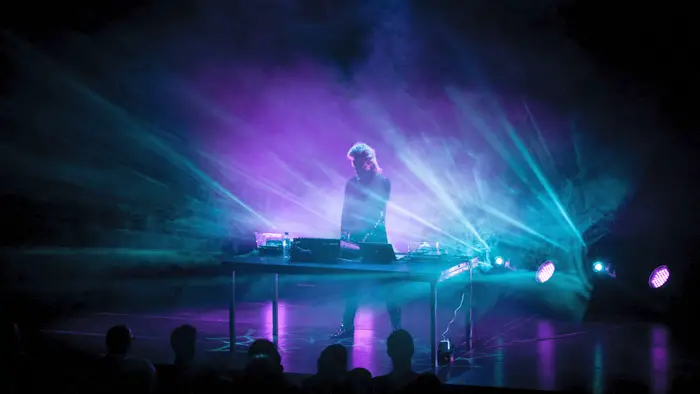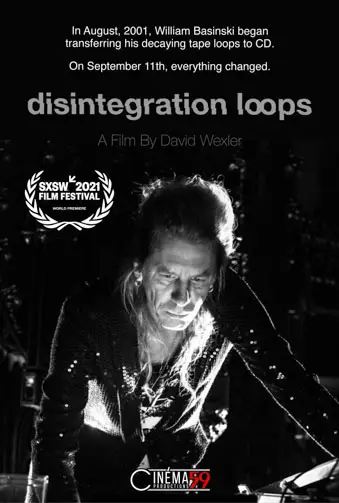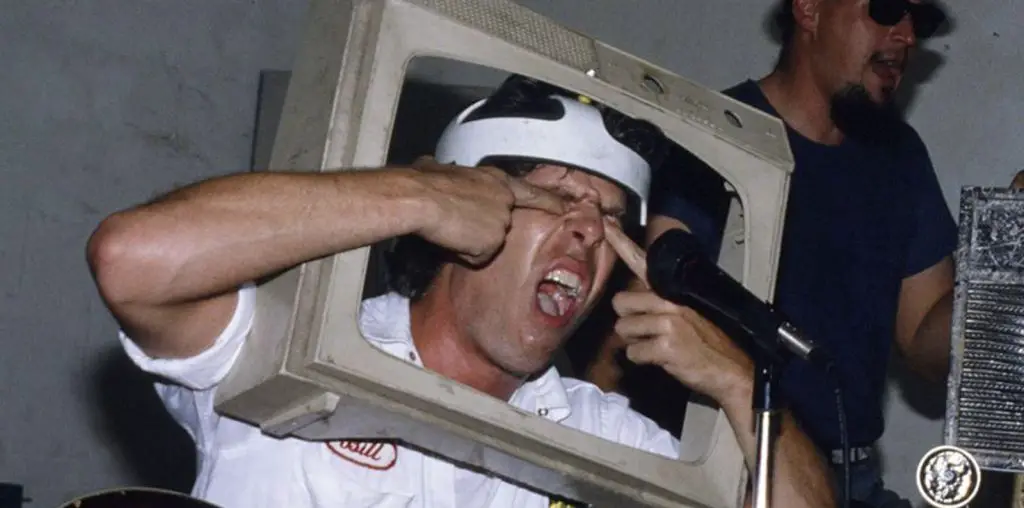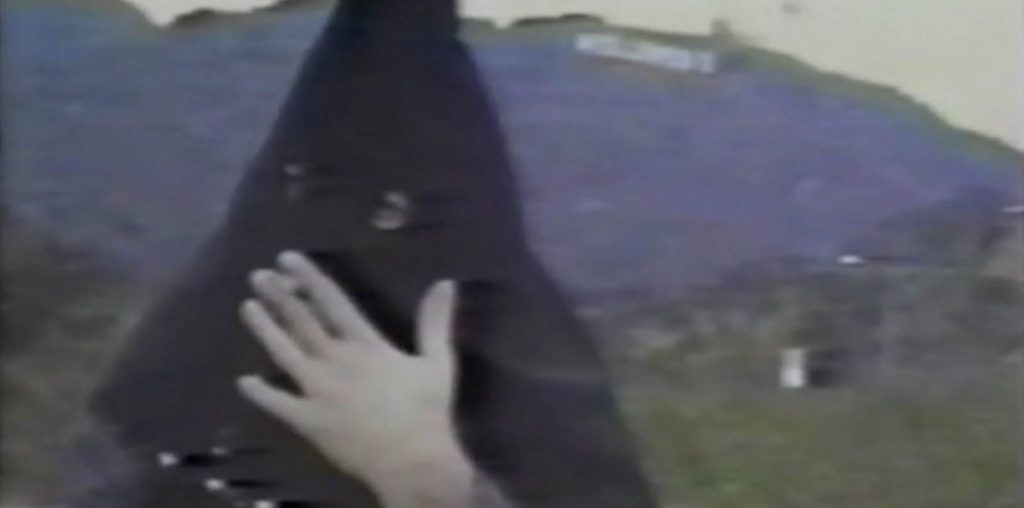
SXSW FILM FESTIVAL 2021 REVIEW! On the cusp of the 20th anniversary of the World Trade Center attack, ambient music frontiersman William Basinski guides us through a comprehensive look at his seminal album, Disintegration Loops. Director David Wexler revisits the impact of the definitive musical elegy with its father. The musician is on the cusp of his latest release, which was to be marked with a worldwide tour. Though, it would be paralyzed from yet another tragedy, the global pandemic.
While the interviews for this 45-minute documentary are limited to Zoom meetings and the technical complications therein (of which we are all familiar), Disintegration Loops provides a wide berth of personal footage from Basinski himself. He shares photos and videos documenting the earliest days of his artistic journey to ambient musical messiah during one of the most turbulent times in New York City’s history. He takes us through his struggles and successes, from his religious Texas roots to his bon vivant days in the 1980s underground music scene of the Big Apple to musical elder statesman of the city’s healing.
We witness his archive-based approach to the origins of his sound as Basinski burrows into his recordings (both his and found pre-recorded sounds), giving them an entirely new life. His most acclaimed creation would be the eponymous tracks, a four-album collective of haunting, ethereal, repetitive sounds spanning over five hours. Many critics heralded it as a masterpiece, including the influential Pitchfork, which gave it a perfect 10 and listed it as one of the best albums of the year and decade and the third-best ambient music album of all time.
The melancholic melodies within Disintegration Loops, as Basinski thoroughly describes and Wexler recreates with animation, was a unique process that he stumbled across while transmitting tape-recorded music to a more reliable digital format. These “loops” of tape would begin to deteriorate as they passed through the tape head, causing the iron oxide to fall off its plastic backing. As Basinski himself states, it is actually capturing the life and death of music as it is being played again and again.

“…revisits the impact of the definitive musical elegy…the eponymous tracks…”
Basinski recounts that very day in September when he was in his Brooklyn apartment and was alerted to the Trade Center attacks. He scrambled to the roof with friends, recording the remaining hours of their standing, playing his finished recording, and watching the structures crumble to the ground, adding deeper poignancy to his music.
On the eve of the 20th anniversary of the attacks, Basinski reflected with Wexler on his early days as a “flamboyant child” to a conservative NASA-employed father and the difficulties he had fitting in before discovering an outlet through music. Wexler also speaks with multifaceted New York performer/composer Maxim Moston, Australian composer/artist Lawrence English, and Pitchfork’s then-editor Mark Richardson, who recounts his transformative listening of the album in a tumultuous time.
It is these interviews and recapturing the sense of hopelessness that gives Wexler’s documentary its power. Hearing how the album helped citizens grieve and how it captured the city’s feelings in an almost tangible way is emotionally charged. This helps the film get past some of the technical issues, most present during the aforementioned interviews, that maybe could have been edited around.
At 45 minutes long, Wexler’s Disintegration Loops would make a fine double-bill with Other Music, a 2019 documentary focusing on the influential 4th Street store that shuttered its doors in 2016, in which Basinski is featured briefly. As it stands, the titular album and its collective healing power at a most needed time still resonate. The director’s look at its creation and Basinski’s career is engaging, technical flaws and all.
Disintegrations Loops screened at the 2021 SXSW Film Festival.

"…the titular album and its collective healing power at a most needed time still resonate."


